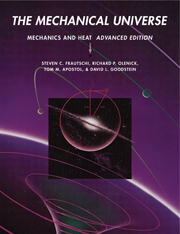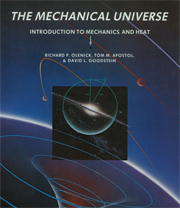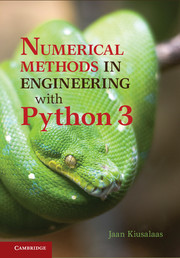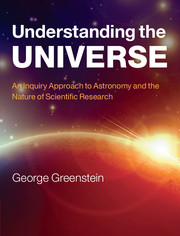The Mechanical Universe
This innovative physics textbook intended for science and engineering majors develops classical mechanics from a historical perspective. The presentation of the standard course material includes a discussion of the thought processes of the discoverers and a description of the methods by which they arrived at their theories. However the presentation proceeds logically rather than strictly chronologically, so new concepts are introduced at the natural moment. The book assumes a familiarity with calculus, includes a discussion of rigid body motion, and contains numerous thought-provoking problems. It is largely based in content on The Mechanical Universe: Introduction to Mechanics and Heat, a book designed in conjunction with a tele-course to be offered by PBS in the Fall of 1985. The advanced edition, however, does not coincide exactly with the video lessons, contains additional material, and develops the fundamental ideas introduced in the lower-level edition to a greater degree.
- Develops classical mechanics from a historical perspective
- Introduces new concepts
- Includes examples and end of chapter problems
Product details
No date availableAdobe eBook Reader
9781139632232
0 pages
0kg
450 b/w illus. 20 tables 467 exercises
This ISBN is for an eBook version which is distributed on our behalf by a third party.
Table of Contents
- Preface
- 1. Introduction to the mechanical universe
- 2. The law of falling bodies
- 3. The language of nature: derivatives and integrals
- 4. Inertia
- 5. Vectors
- 6. Newton's laws and equilibrium
- 7. Universal gravitation and circular motion
- 8. Forces
- 9. Forces in accelerating reference frames
- 10. Energy: conservation and conversion
- 11. The conservation of momentum
- 12. Oscillatory motion
- 13. Angular momentum
- 14. Rotational dynamics for rigid bodies
- 15. Gyroscopes
- 16. Kepler's laws and the conic sections
- 17. Solving the Kepler problem
- 18. Navigating in space
- 19. Temperatures and the gas laws
- 20. The engine of nature
- 21. Entropy
- 22. The quest for low temperature
- Appendix A. The international system of units
- Appendix B. Conversion factors
- Appendix C. Formulas from algebra, geometry, and trigonometry
- Appendix D. Astronomical data
- Appendix E. Physical constraints
- Selected bibliography
- Index.






